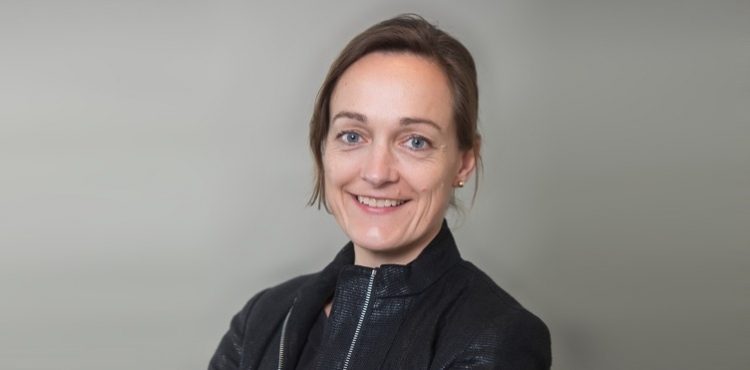
Meet Dr Candice Delcourt, Senior Research Fellow, Neurological and Mental Health Division
Dr Candice Delcourt is a Senior Research Fellow at The George Insititue for Global Health, leads neurology program at The George Insitute and a clinical neurologist.
1. Tell us a little bit about yourself. What were your motivations for getting into research and neurological and mental health space/how did you start out?
I am a clinical neurologist and a senior research fellow. I lead the neurology program at The George Institute. I was born in Belgium and trained as a neurologist with a special interest in stroke in Liege in Belgium and in Dijon in France. As a freshly graduated neurologist, before settling down to a definitive job I decided to spend a year overseas with my partner. He had a job arranged in Sydney so I looked for something to do here. One day on my way to work, I had a call from someone called Craig Anderson; I did not know who he was but he offered me a temporary research fellow position at the George Institute which I accepted despite having only a little idea of what research was at the time. I seem never to have left.
2. What does your research aim to find and change about how we currentlt talk about stroke?
Stroke is a serious condition, which can both be prevented and, more recently, treated in the first few hours after the event. This is poorly done in many regions in the world. There are serious disparities in care even in first world countries like Australia. My research aims at improving stroke care in rural and regional Australia where people have poor access to the specialized treatments available in big cities.
3. What attracted you to join The George Institute and why do you believe your research is important?
The George Institute is a wonderful place to work with many friendly staff and inspiring researchers from various backgrounds. Research is essential to improve health care. As a clinician, I always ask myself why I do things the way I do and what is the best therapy for my patient. The answers to these questions can only come through research. Despite our amazing progress there are many health conditions with very poor outcomes and research is the only way to improving these patients' lives. Stroke is a good example; there has been great progress in the management of acute stroke in the last five years with the development of highly effective treatments.
4.Can you tell us a little bit about what a typical day looks like for you as a Senior Research Fellow
A typical research day will include an early morning swim at Sydney University pool, a quick chat with colleagues in front of the coffee machine and then sit in front of my computer checking emails, writing/reviewing papers or grants. An important part of my day is spent in meeting with other researchers. I enjoy discussing new ideas and project, having updates on research and staff projects but I would love to have a few more hours in a day to read and brainstorm new projects. On my non-research days I see patients in the clinic and this keeps me focussed on the task at hand.
5. Why is raising awareness to stroke on World Stroke Day important to you?
As a neurologist, I see patients who have ignored their stroke risk factors for many years or have ignored the symptoms of their acute stroke. They have stayed at home, hoping that they will get better and missed the golden window for treatment. Having a “World Stroke Day” provides an opportunity to put stroke on everyone’s agenda. It gives us an opportunity to raise awareness of stroke in the community, highlight prevention and emphasize the importance of recognizing stroke symptoms and seeking urgent treatment.
6. In your opinion what is the biggest challenge of stroke facing Australia today?
In some senses we are winning. The rate of stroke adjusted for age is going down but because we are an aging population the lifetime risk of stroke has increased. This means that the overall burden of stroke in Australia is increasing. Attacking this requires two fronts. First we need to treat stroke risk factors like smoking, diabetes, hypertension and raised cholesterol. Secondly we need to make sure that the new effective treatments for acute stroke are available to all Australians, not just those who live near major centres. We need to improve stroke care in rural and remote areas to decrease the burden of stroke for all Australians.

